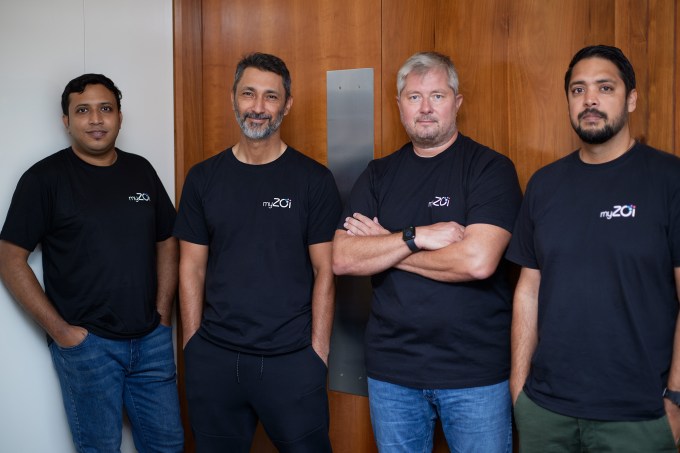myZoi wants to make remittances less costly for migrant workers
Money sent home by migrant workers not only helps their families, but also enables entire economies to develop. But transferring money comes at a high cost to workers, with remittance fees averaging about 6.5%. MyZoi wants to cut fees by more than half, starting with the five million low-income migrant workers in the United Arab Emirates.
MyZoi (which means “my life” in Greek) announced today it has raised $14 million from SC Ventures, a unit of Standard Chartered, and Japanese financial services group SBI Holdings. It holds two regulatory licenses from the Central Bank of the UAE and is a wholly-owned subsidiary of Standard Chartered Bank.
The startup has two core offerings. The first is a digital remittance service that will reduce transaction costs to less than 3%, in line with item 10c of the United Nation’s Sustainable Development Goals 2030. The second is a payroll system created specifically for companies that employ migrant workers.
MyZoi co-founder and chief product officer Christian Buchholz first came up with the idea for the platform and incubated it under SC Ventures. Before starting myZoi, Buchholz spent five years leading SC Ventures’ design and innovation initiatives across multiple regions. During that time, he said he talked to many low-migrant workers and found that they often remit up to 80% of their income to relatives back home, and have very little money left for personal use or savings.
Buchholz was introduced to his co-founder, CEO Syed Muhammed Ali, by SC Ventures, to turn the concept into a commercial venture with UAE as its pilot market. The two continued to do research about the problems migrant workers and their employers face.

myZoi co-founders Nabid Hassan, product lead; Syed Muhammad Ali, CEO; Christian Buchholz, CPO; Shanawaz Rouf, COO
“Low-income migrant workers are essentially locked out of the formal financial system,” Ali told TechCrunch. “Services currently offered to them are neither joined up nor developed with their needs and capabilities in mind.”
As a result, many migrant workers turn to cash-based or informal methods of sending cash home. For example, the myZoi team spoke with one woman who worked as a domestic helper and regularly sent money home to her family. Since she didn’t have a bank account, she relied on her uncle as an intermediary to distribute the money. But she found out that her uncle hadn’t shared those funds with her relatives.
Ali said that many employers wants “compliant and simple solutions that are cost effective with a strong social impact,” while their workers desire a “truly inclusive, comprehensive and fit-for-purpose financial service that could enable them to meet their basic transactional as well as longer term financial needs.” MyZoi plans to cover all of that by operating on a B2B2C model, with payroll solutions for employers, remittance services for their migrant workforce and financial literacy materials.
Ali said one challenge myZoi wants to solve is the distrust many migrant workers have of financial services, especially digital ones. The app is designed for people with low levels of financial literacy and “based on extensive research and human-centered design principles.” Users receive their salaries directly into their myZoi digital wallets and can send money from there with the touch of a button.
MyZoi will be able to keep remittance costs down because of its digital-only model, which means it is able to run relatively lean operations and minimize overheads, Ali said. It is also building its own rails to limit transaction costs in key corridors.
For employers, myZoi wants to solve the friction of systems that require paper-based onboarding of each employee and have hidden charges. Ali said many employers “would also like to see a little more empathy towards the challenges their employees face in using financial services.”
The customers myZoi will serve range in size from a few hundred employees to more than 10,000 across different industries like oil and gas, medical, hospitality, construction and retail.
Ali said that myZoi will differentiate from other payroll solutions because it was created for low-income workers. An advantage for employers is that myZoi requires no technical integration or extensive paperwork to start using. Instead, its user onboarding process is entirely digital. MyZoi will primarily serve workers from Pakistan, India, Bangladesh, the Philippines and Nepal.
In a statement about the funding, SC Ventures member Gautam Jain said, “There are over 1.4 billion unbanked individuals globally. At SC Ventures, we invest in innovative business models like myZoi so we can better serve the communities we operate in. We believe that fintech innovations such as myZoi are emerging as the catalyst for change. They are building an ecosystem that delivers simple yet meaningful solutions to low-income migrant workers, while offering a commercially viable and socially impactful proposition.”

